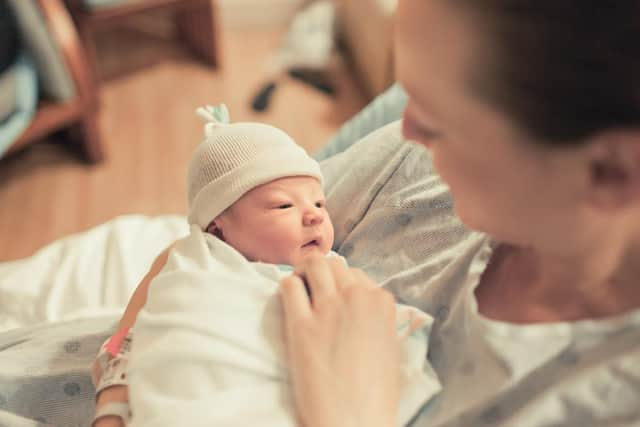Mental health hubs: where in England are the centres for new and expectant mothers - and how will they work?
Mental health hubs for new, expectant and bereaved months will be set up around England NHS leaders have announced.
These hubs will bring maternity services, reproductive health and psychological therapy together in one place - but how many are there and where in the country will they be?
Here’s what you need to know.


What are mental health hubs and how many will there be?
Advertisement
Hide AdAdvertisement
Hide AdNHS England said that the mental health hubs will offer psychological therapies for new and expectant mothers, alongside the clinics also providing training for maternity staff and midwives.
There are plans for 26 new hubs across the country with 10 sites expected to be up and running within months, with the remainder to open by April next year.
By the end of 2021, around 6,000 women are set to receive care and treatment for a wide range of mental health issues, ranging from post-traumatic stress disorder (PTSD) after giving birth to others with a severe fear of childbirth.
Dr Giles Berrisford, NHS England’s national speciality advisor for perinatal mental health, said that around a quarter of women experience mental health problems both in pregnancy and during the 24 months after giving birth.
Advertisement
Hide AdAdvertisement
Hide AdDr Berrisford said these new maternal mental health services “will provide vital support, meeting the specific needs of these women.”
He added that the hubs will “significantly contribute to the overall commitment of the NHS to enable at least 66,000 women with moderate to severe mental health difficulties related to motherhood to access specialist care by 2023-24.”
Claire Murdoch, NHS England’s national mental health director, said: “Every woman has a unique experience with pregnancy and motherhood and some will need extra support to cope with mental health issues that can range from anxiety to severe depression so I am delighted that mothers across all areas of the country will be able to access this help if they need it.
“The NHS is here for everyone who needs help and the expansion of specialist care through the rollout of these maternal mental health services will strengthen the services already in place, enabling us to improve the quality of care and outcomes for many women.”
Advertisement
Hide AdAdvertisement
Hide AdMs Murdoch said she encourages “any mum who needs this support to come forward safe in the knowledge that her mental health and wellbeing are of paramount importance and she should not feel ashamed of accessing the help she needs.”
Where will the mental health hubs be located?
The first 10 mental health hubs in England will be in the following locations:
– Birmingham & Solihull
– Leicestershire
– Northamptonshire
– Shropshire Telford & Wrekin
– South Yorkshire and Bassetlaw
– Lancashire and South Cumbria
– Hampshire and Isle of Wight
– Kent and Medway
– Cornwall
– Devon
However, the plans are that every area in the country will have one by April 2024, as part of the NHS Long Term Plan to increase access to psychological support for women before, during and after pregnancy.
Jude Diggins, the Royal College of Nursing’s interim director of nursing, policy and public affairs, said that due to the Covid pandemic, these new hubs “could not come at a more important time.”
Advertisement
Hide AdAdvertisement
Hide AdMs Diggins said: “Having a baby is a life-changing experience and no one should have to go through this without the help and support they need.
“Sadly, this pandemic has placed even more strain on existing perinatal mental health services as isolation, loneliness and other factors take hold.
“The challenge for these new, more integrated, services will be, as before the pandemic, ensuring there are enough highly-skilled, mental health nursing staff to safely and effectively care for patients when our health and care services are already dealing with widespread shortages and vacancies.”
Read More: